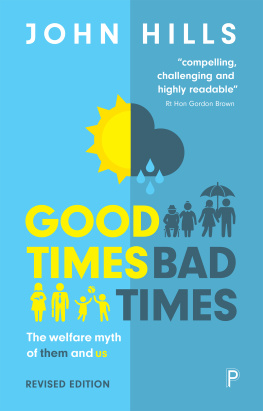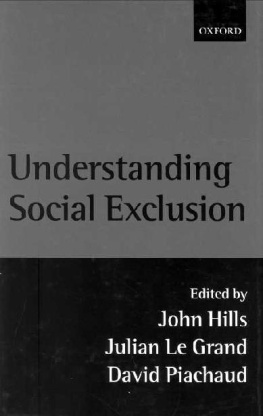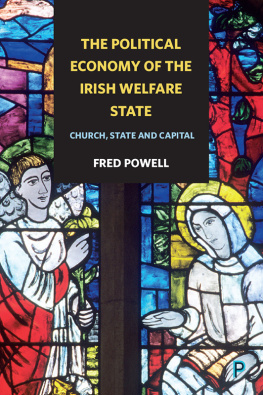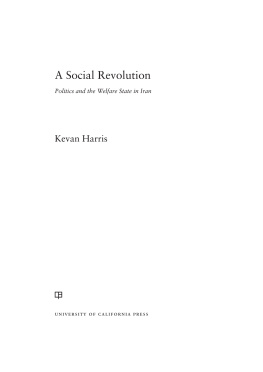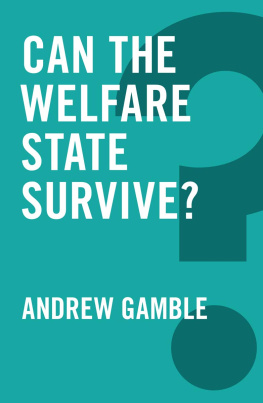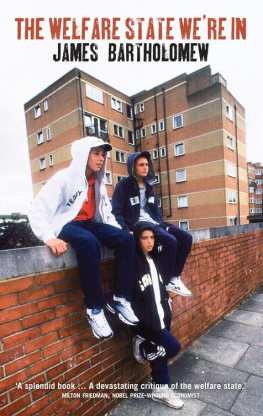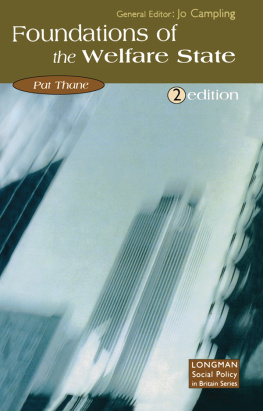First edition published in Great Britain in 2015
Revised edition published in Great Britain in 2017 by
Policy Press University of Bristol 1-9 Old Park Hill Bristol BS2 8BB UK Tel +44 (0)117 954 5940 e-mail
North American office: Policy Press c/o The University of Chicago Press 1427 East 60th Street Chicago, IL 60637, USA t: +1 773 702 7700 f: +1 773-702-9756 e:
Policy Press 2017
British Library Cataloguing in Publication Data
A catalogue record for this book is available from the British Library
Library of Congress Cataloging-in-Publication Data
A catalog record for this book has been requested
ISBN 978-1-4473-3647-1 paperback
ISBN 978-1-4473-3649-5 ePub
ISBN 978-1-4473-3650-1 Mobi
ISBN 978-1-4473-3648-8 ePdf
The right of John Hills to be identified as author of this work has been asserted by him in accordance with the Copyright, Designs and Patents Act 1988.
All rights reserved: no part of this publication may be reproduced, stored in a retrieval system, or transmitted in any form or by any means, electronic, mechanical, photocopying, recording, or otherwise without the prior permission of Policy Press.
The statements and opinions contained within this publication are solely those of the author and not of the University of Bristol or Policy Press. The University of Bristol and Policy Press disclaim responsibility for any injury to persons or property resulting from any material published in this publication.
Policy Press works to counter discrimination on grounds of gender, race, disability, age and sexuality.
Cover design by Soapbox Design, London
Readers Guide
This book has been optimised for PDA.
Tables may have been presented to accommodate this devices limitations.
Image presentation is limited by this devices limitations.
Good times, bad times
The welfare myth of them and us
Revised edition
John Hills
Contents
To Tony, Howard and Julian
B ENEFIT EROSION
Situation where benefits fall in value relative to average incomes, for instance, because they are increased each year in line only with prices, when incomes are growing in real terms
C ASH TRANSFERS
Cash benefits and tax credits from government
D ECILE GROUP
One-tenth of a population divided up in order of income, wealth, etc
D EFINED BENEFIT
Kind of pension where the amount paid depends on final salary (or other measure of earnings) rather than on investment returns
D EFINED CONTRIBUTION
Kind of pension where the amount paid depends on how much is paid in and on subsequent investment returns
D ISPOSABLE INCOME
Income after direct taxes
D IRECT TAXES
Taxes paid by an individual or a household where the amount paid depends on their circumstances; they include Income Tax and National Insurance Contributions
E FFECTIVE MARGINAL TAX RATE ( OR DEDUCTION RATE )
The proportion of any increase in earnings or other earnings that is taken in direct taxes and reduced means-tested benefits
E QUIVALISED INCOME
Income adjusted for family size
F ISCAL DRAG
Situation where tax takes a greater proportion of peoples income because tax allowances and brackets grow more slowly than average incomes
G INI COEFFICIENT
Index of inequality (equal to zero if all households or individuals have the same and 1 or 100 per cent if one person has everything and the rest nothing)
I NDEXATION
Adjustment each year of benefits, tax allowances, etc, for inflation or to keep in line with earnings or income growth
I NDIRECT TAXES
Taxes where the amount paid does not depend on an individuals income, but on things such as spending on particular goods, and often collected via businesses, such as Value Added Tax
M ARKET INCOME
Income from wages, private pensions, interest and other investment income, before taxation or state benefits
M EDIAN
The middle level of income, wealth, etc, in a population, with half having more and half having less
N ET INCOME
Income after direct taxes
P EN S PARADE
Way of showing income or wealth distribution, with the height of each column in proportion to the amount received by each group in order
P ERCENTILE
Value separating each 1 per cent of a population arranged in order of income, wealth, etc
P OVERTY TRAP
Situation where people on low incomes gain little from any increase in gross income because of combined effects of taxes and reduced means-tested benefits
P ROGRESSIVE TAXATION
Tax system where those with higher resources pay taxes that are a greater proportion of those resources
Q UINTILE GROUP
One-fifth of a population divided up in order of income, wealth, etc
R EGRESSIVE TAXATION
Tax system where those with higher resources pay taxes that are a lower proportion of those resources
T RIPLE LOCK
Guarantee that pensions rise each year by the higher of prices, earnings, or 2.5 per cent
W ELFARE STATE
Public spending on and provision for healthcare (such as NHS), education, housing, personal care, pensions and cash benefits of all kinds (as opposed to welfare, as used in the US, referring narrowly to means-tested cash benefits for out-of-work working-age people)
AHC | After Housing Costs |
BHC | Before Housing Costs |
BHPS | British Household Panel Survey |
BSA | British Social Attitudes survey |
CPI | Consumer Prices Index |
CTC | Child Tax Credit |
DCLG | Department for Communities and Local Government |
DfE | Department for Education |
DWP | Department for Work and Pensions |
EMA | Education Maintenance Allowance |
ESA | Employment and Support Allowance |
EUROMOD | Essex University tax and benefit microsimulation model |
FSM | Free School Meals |
GDP | Gross Domestic Product |
HB | Housing Benefit |
HBAI | Households Below Average Income |
HMRC | Her Majestys Revenue and Customs |
IFS | Institute for Fiscal Studies |
ILO | International Labour Organization (measures unemployment in terms of those looking for work, not just those claiming unemployment benefits) |
IS | Income Support |
ISA | Individual Savings Account |
JSA | Jobseekers Allowance |
LAs | Local Authorities |
LFS | Labour Force Survey |
LHA | Local Housing Allowance |
NMW | National Minimum Wage |
NAO | National Audit Office |
NSP | National Scholarship Programme |
OBR | Office for Budget Responsibility |

